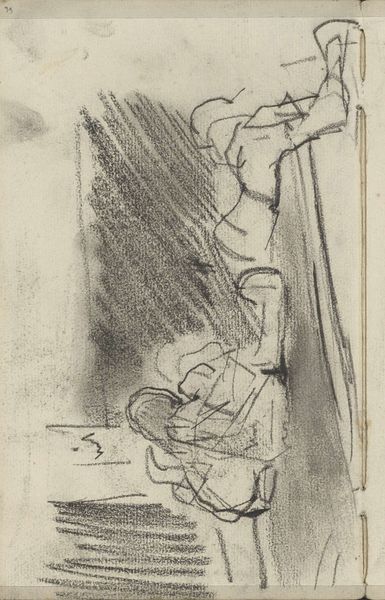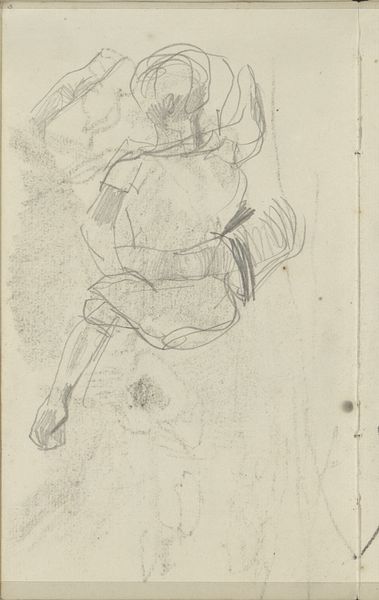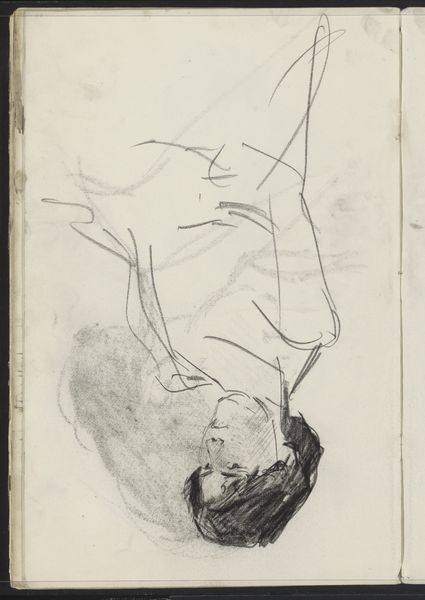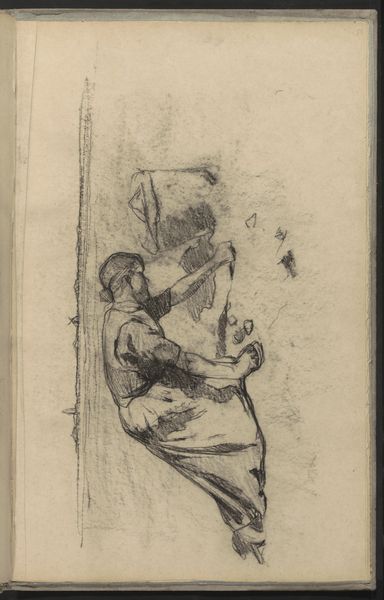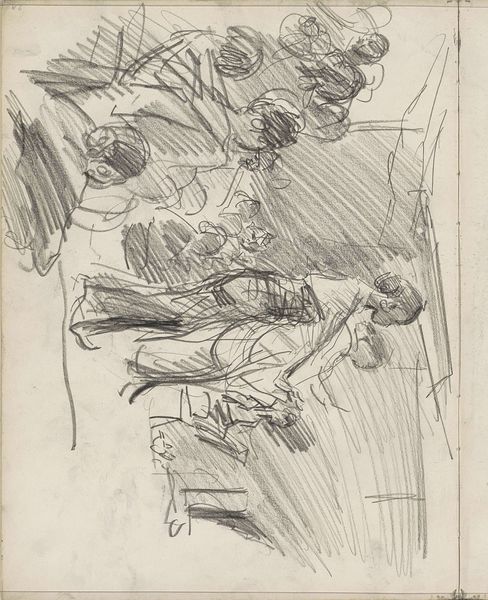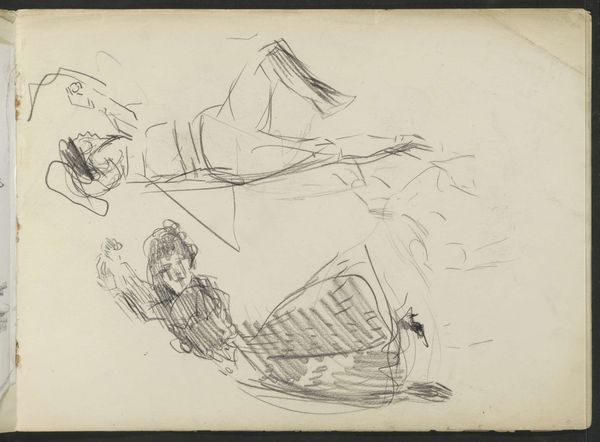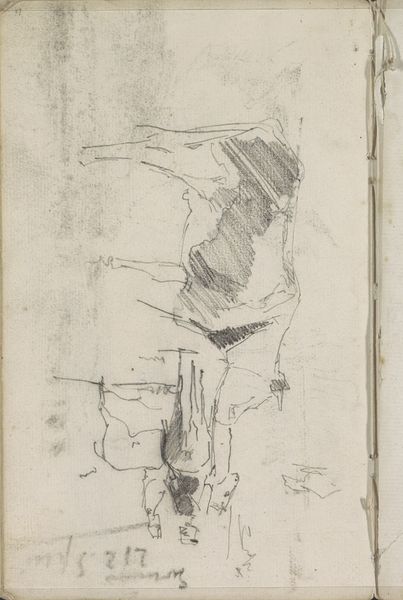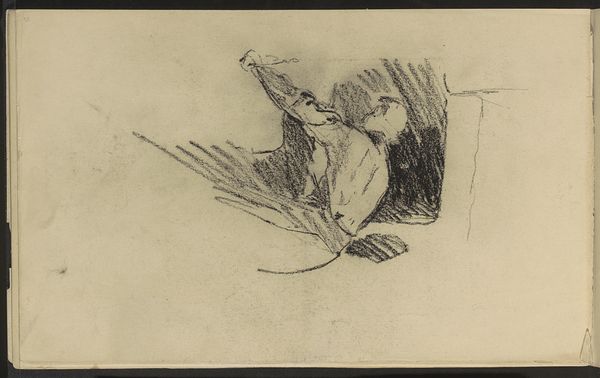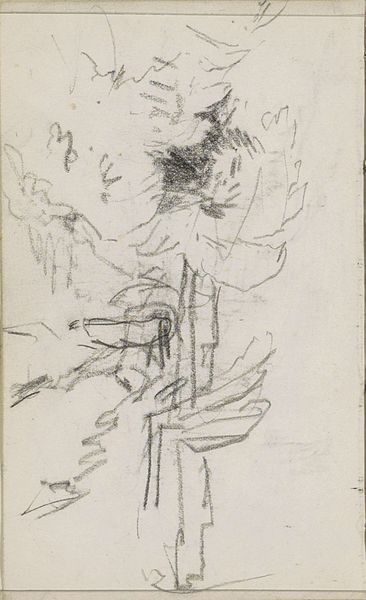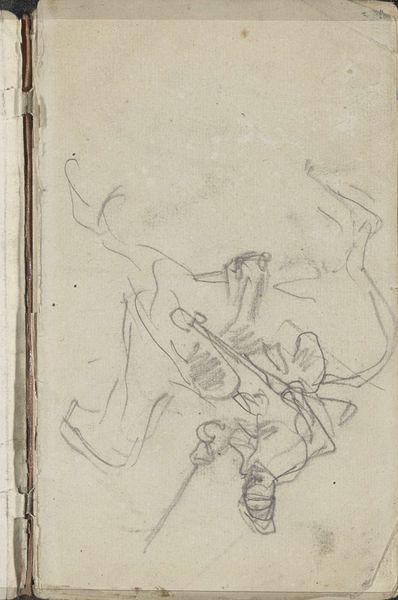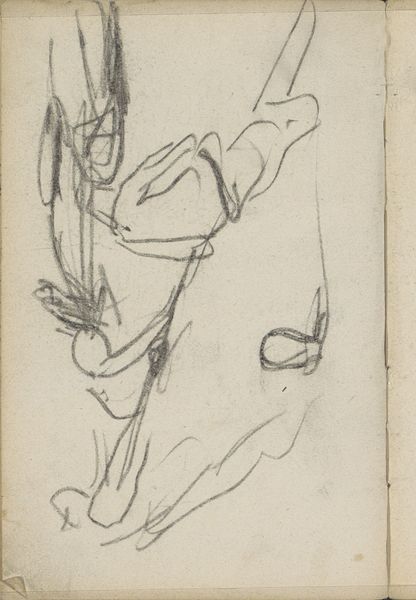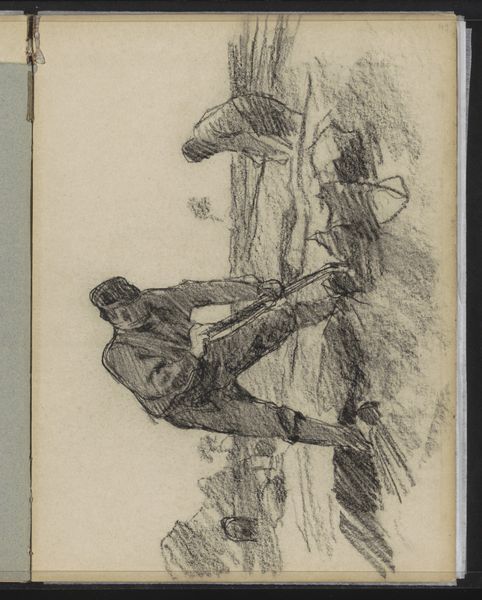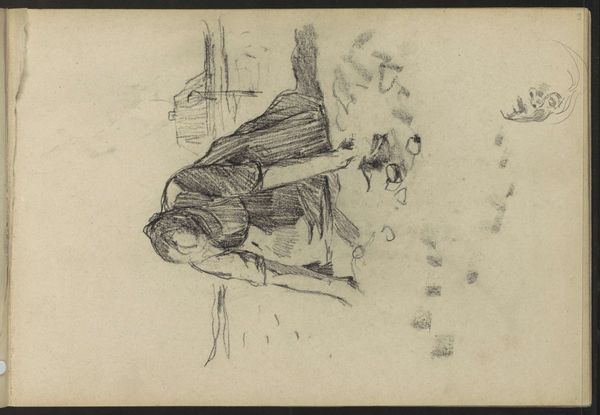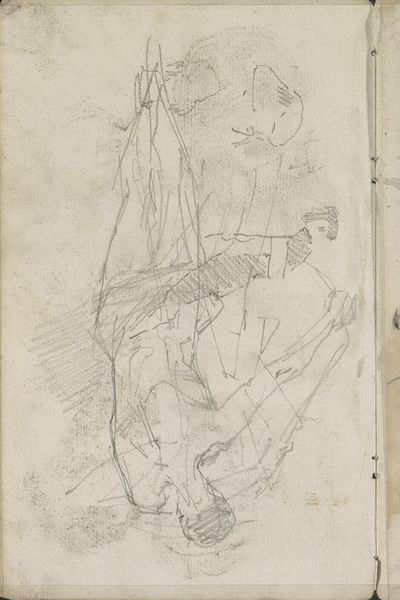
drawing, pencil
#
portrait
#
drawing
#
impressionism
#
pencil sketch
#
figuration
#
pencil
#
realism
Copyright: Rijks Museum: Open Domain
Curator: Looking at this touching drawing, dating back to around 1884-1887, we see "Kneeling Potato Harvester" by Willem Witsen, part of the Rijksmuseum collection. It's rendered in pencil, capturing a figure in what appears to be a moment of intense labor. Editor: The immediate feeling it gives me is one of quiet stoicism, doesn't it? Like watching a memory surfacing in faded charcoal. Her arms, stretched out, seem to be reaching, but what is she grasping? And that discarded clog by her foot just hints at untold hardship. Curator: The placement of the clog adds to that narrative, definitely. Witsen was associated with Dutch Impressionism, but the social realism in this work resonates with Millet's "Gleaners," even Courbet’s work. The focus is shifted from grand narratives to the everyday experience and dignity—or perhaps indignity—of labor. Potatoes had significant symbolic weight in the late 19th century. Editor: I see what you mean. Potatoes; Earthbound. Necessary for life and therefore imbued with, with a sort of quiet holy significance… Yet look at the frantic scribbles above her – they create such a conflicting sense of both tension and transience. Curator: The nervous energy in those lines adds a compelling psychological dimension. Are they purely aesthetic or hinting at her inner world – the physical demands or perhaps anxieties related to her work? I suspect a confluence. Beyond direct representation, artists use symbols to communicate emotions. Remember that, in various cultural contexts, the harvest carries overtones of hope but also precarity. Editor: Hope balanced against an immense, crushing weight. It makes you think, what sort of society allows people to be reduced to barely-there pencil sketches laboring anonymously on some distant field? And does that even matter in the face of someone working so purely within her context? Curator: I believe art such as this offers precisely such reflections. While Witsen had a privileged background, it’s undeniable he wanted to give visibility to the hardships endured by the working class. This piece achieves just that through a sort of raw immediacy. Editor: Yeah, an immediacy which catches your throat unexpectedly. You look at this unassuming little sketch and realise you're standing right there alongside her. A reminder of history and present both bearing their heavy burden of labor… And those strange angles above… What can she pick up to save herself? Curator: Precisely. It is up to us, viewing now, to complete that exchange. To learn how we can act upon all burdens we face. Editor: Indeed. What a deeply moving thing an old pencil sketch can provoke.
Comments
No comments
Be the first to comment and join the conversation on the ultimate creative platform.
